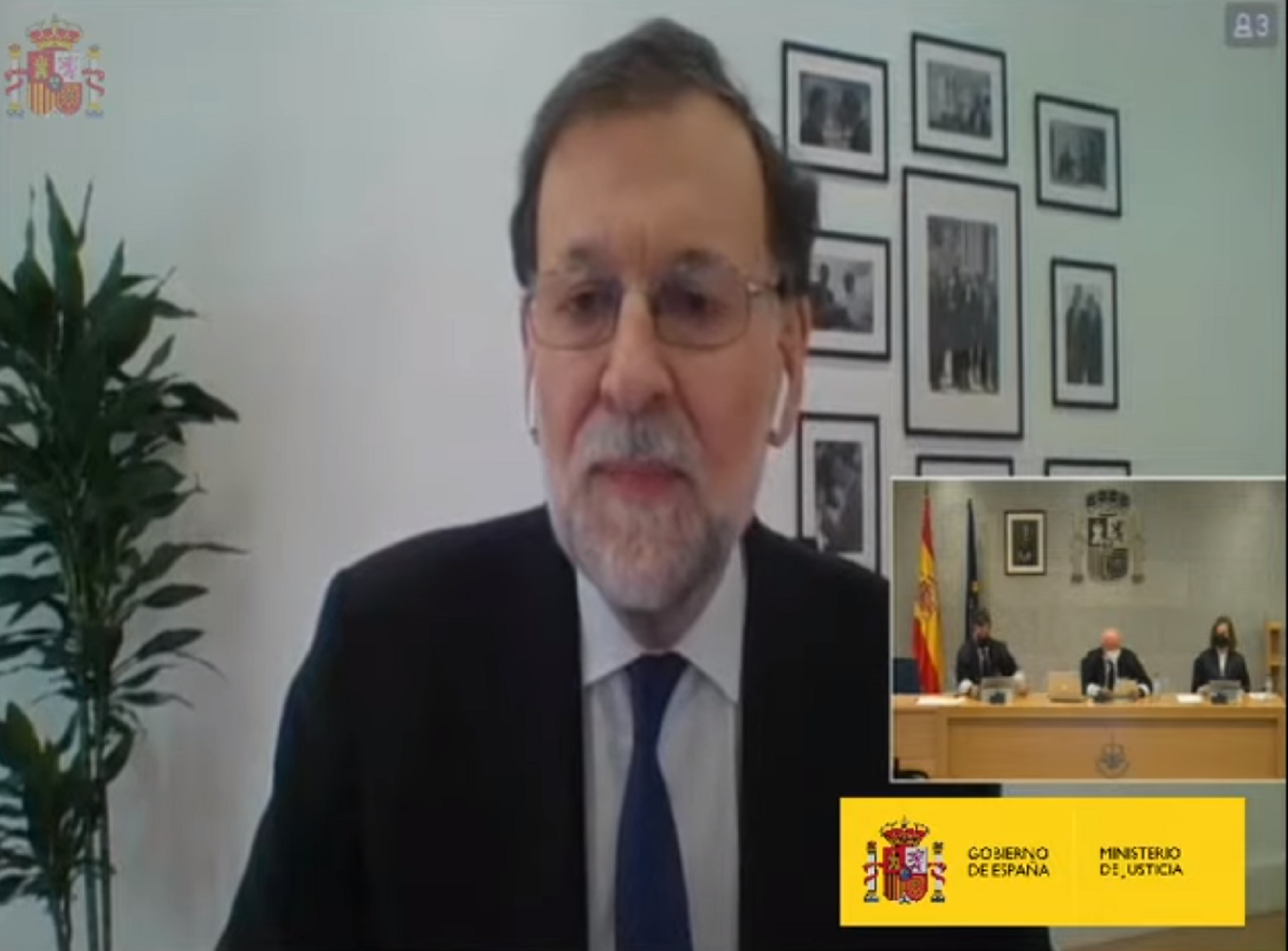It was the answer he gave to the first three questions this Wednesday and it set the tone for his whole appearance: "It's absolutely false." Former Spanish prime minister Mariano Rajoy was appearing before the National Audience court as a witness in the Bárcenas papers trial, centred on an alleged corrupt parallel accounting system used by the Popular Party for three decades, including under his leadership. Rajoy refuted all the accusations: he did not receive any bonuses, he did not sign anything, nor did then-party treasurer Luis Bárcenas give him 25,000 euros when he left the post, nor did the former PM shred the Caja B parallel accounting books while Bárcenas looked on. At one point in his declaration, he even went further, railing against the consistency of the former PP official. "There was no Caja B and I did not shred what I never had in my hands," he insisted. And then he raised his voice: "It's a delusion and what we're going through is starting to be an embarrassment." As a witness, like José María Aznar earlier in the day, he has an obligation to tell the truth. Otherwise, he could face criminal consequences.
"There is no Caja B, there are the papers of Mr Bárcenas, who will have to explain them," Mariano Rajoy summed up in his statement to the court, made by digital link. The former president of Spain's Popular Party stressed how during his "forty years as a party member" he has not heard from anyone about the "famous Caja B". To highlight this idea, he pointed out how, before him, all witnesses who have held high-ranking offices in the party have denied its existence. And he described it as "metaphysically impossible" that he could destroy the documents of the parallel accounting books, an action which Bárcenas has attributed to him.
Mariano Rajoy: "It's a delusion and an embarrassment"
But he soon had to add nuances to his claims. Some leaders, such as Pío García Escudero, have acknowledged having received bonuses. "It is true, but it is also true that 95% of those who appear in Bárcenas's papers have stated that what is said about them is false. For example, I do," he said. He demanded that “the affirmations of 95% of people should not be put in doubt,” as he was doing with the remaining 5%. Rajoy also assured that he was not aware of the donations of businesspeople to the party, because he was not in charge of "financial affairs, nor of the income, nor of the expenses of the PP".
The former Spanish prime minister questioned the story given by the party's ex-treasurer, assuring that "first he said he had handed me the papers, and then he changed it to 'a photocopy of the last page'". And he added: "He's not even able to stay in agreement with himself." He accused the former treasurer of seeking to "involve others in decisions exclusively of his own and for his own benefit."
In response to the insistent cross-examination of lawyers, Rajoy warned: "You are using Mr Bárcenas as an authoritative account and that is very dangerous." And he asserted: "There are people who keep trying to taking shots for political motives at things that are not true."
Indeed, Luis Bárcenas asked for a face-to-face confrontation with Mariano Rajoy - a feature which Spanish law allows in special cases, but which was denied by the judge - in anticipation of the possibility that the two versions migh be contradictory, as has ended up happening. The ex-PP treasurer claimed that the former prime minister was had "perfectly familiar" with the Caja B and that Rajoy personally destroyed the documentation with a paper shredder.
What is the alleged crime?
The specific focus of this trial is the payment of the building refurbishing of a part of the headquarters of the Popular Party, at Calle Genoa, 13 in Madrid, which was allegedly funded using 900,000 euros of undeclared money from the party's so-called Caja B, its secret unofficial accounts, via which irregular income for large companies entered and from which bonuses were paid to senior figures in the party. This parallel accounting system was maintained for at least two decades. The trial will also seek to clarify whether the PP committed a tax offence by failing to declare the allegedly illegal donations of businesspeople and whether Luis Bárcenas, then treasurer of the party, creamed off some of that money himself. The trial is expected to last until May.
Who is accused?
Luis Bárcenas is the main defendant. Having already been sentenced to 29 years' imprisonment in the first Gürtel trial, he now faces a possible five further years for the crimes of misappropriation of funds, tax offences and forgery. He will be accompanied in the dock by former PP manager Cristóbal Páez and three officials from the construction company that carried out the works in the Calle Genoa building. The PP as an organization also faces another accusation as a subsidiary civil party responsible for the crimes investigated. On the other hand, key people will not sit in the dock, but on the witness bench include: former PMs José María Aznar and Mariano Rajoy; the party's former general secretaries María Dolores de Cospedal, Javier Arenas, Francisco Álvarez Cascos and Ángel Acebes, and the former speaker of the Spanish senate Pío García Escudero, among others.

